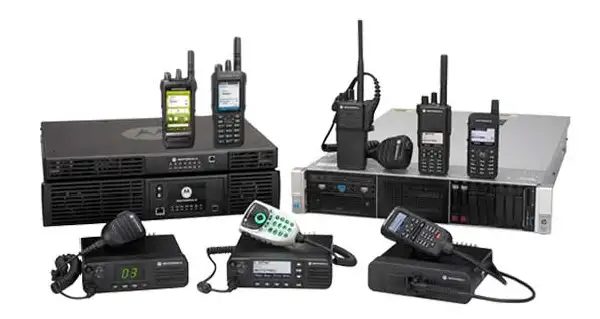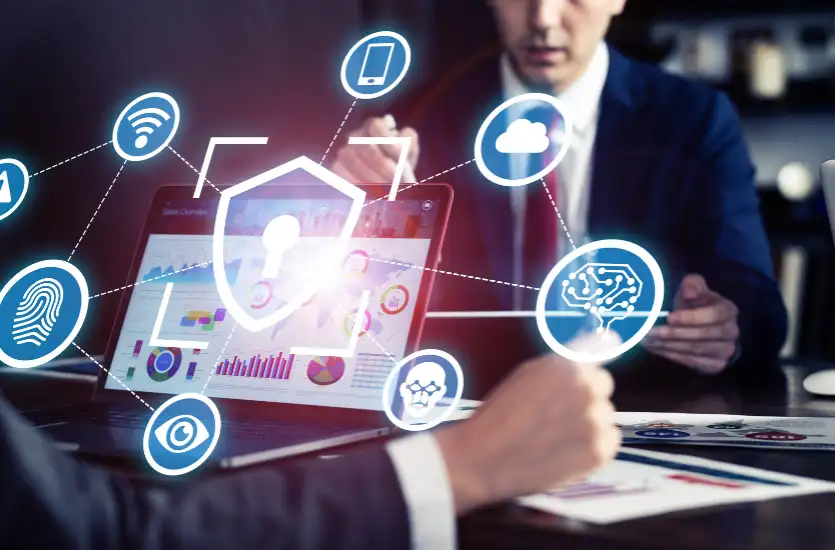When you think of communication, what comes to mind? If you’re like most people, you probably think of those conversations you have with people day in and day out. You know, chatting with a colleague at the water cooler, debriefing on your day with your family during the evening, etc. However, communication goes far beyond the verbal conversations that we have face-to-face.
This is where the concept of unified communications comes into play. Unified communications represent all those different ways that we communicate with one another. It’s things like text communications, video conferencing, email, voice over internet protocol (VoIP), and yes, even two-way radios. And when all of these components are working together, it can improve security, especially in those commercial environments.
What is Unified Communications?
Let’s explore this concept of unified communications a bit further. After all, many of these technologies were not available just a few decades ago. Imagine how long it took to get critical information from point A to point B before email, text, cell phones, and two-way radio systems. We’re not saying it took as long as it took Paul Revere to spread the message that the British were coming, but we kind of are.
That said, unified communication is more than just a convenient way to chat. It represents a shift in how we interact across different mediums—bringing voice, messaging, video conferencing, and file sharing into a single, interconnected system. Instead of using multiple devices or platforms for communication, unified communications create a single, integrated network where users can switch between tools.
The Benefits of Unified Communications
Unified communications offer an organized approach to managing communication tools. Whether sending a quick text, joining a video conference, or making a VoIP call, everything happens within one platform. This consolidation improves the flow of information and reduces time wasted moving between applications or devices. Users can start a conversation on one device, such as a two-way radio, and continue it on a different platform, like a mobile app or video conference.
This interconnectedness makes real-time communication more reliable, which is especially important in industries that rely on security. For example, let’s consider healthcare. Hospital staff must be able to shift from a text alert to a voice call quickly, which can save precious moments when coordinating with security or medical teams. In retail settings, loss prevention teams can communicate through radios and share surveillance footage instantly with management via video conferencing.
Unified communications also help cut down on miscommunication. Allowing for multiple forms of communication keeps everyone connected, even when verbal communication isn’t an option. Text messages, for instance, can be used in noisy environments where traditional voice communication wouldn’t work well, such as in manufacturing plants or construction sites. Depending on the type of two-way radios you use, these systems are more advanced than others, reducing noise to keep what’s going on in the background from interfering.
Communication Efficiency in Security-Sensitive Industries
Today, industries of all kinds demand instantaneous communication, especially when pressured to do more with less. As such, information must be shared quickly and clearly to prevent problems or address issues as they arise.
Let’s explore another example. Take the hospitality industry, for instance. A large hotel hosting a major event might have dozens of employees responsible for different areas of security. Housekeeping may notice an issue in a guest room and can radio it in to the head of security, while additional security personnel may be monitoring cameras for the public spaces. Unified communications enable instant, multi-channel contact between these departments so they can quickly respond to any situation.
Consider this additional example. The movement of goods across long distances means communication must happen when it’s needed, not hours or days later. Two-way radios, connected to a unified platform, can allow security teams to coordinate efforts, share information instantly, and maintain an open line of contact. In airports, for example, radios can be paired with voice or video calls to alert multiple teams to potential security threats.

Two-Way Radios are a Key Component of Your Unified Communications Network
At this point, you get it. You see the importance of integrating communication across devices and channels. You may have already seen evidence of this in your own industry or place of work. But let’s talk a bit more about how two-way radios, specifically Motorola two-way radio solutions and two-way radio accessories, can aid in amping up security, enabling fast communication, and feeding those other channels.
Cybersecurity
Businesses today face increasing concerns about cybersecurity—something that wasn’t even on our radar just twenty years ago. While many think of two-way radios as isolated from digital threats, modern radios are often connected to larger communication networks, which makes them part of a company’s overall cybersecurity strategy. With advancements in radio technology, including encryption and secure channels, two-way radios do indeed help to safeguard communication from external threats.
For example, private conversations between security personnel, incident response teams, or management can now be protected through encrypted channels that prevent eavesdropping or hacking attempts. This level of security helps maintain confidentiality when sharing sensitive information, such as a potential breach or safety issue.
And, new research from insurance provider Aviva reveals that businesses are 67% more likely to experience a cyber incident than a physical theft. What’s even more alarming is that they’re almost five times as likely to have a cyberattack as a fire. So, security is about far more than physical strategies. The best security strategy considers all of these aspects—cybersecurity, physical risks, fires, etc.
Customer Concerns About Privacy and Data
As we consider unified communication, we also need to think about concerns that consumers have about their data, and of course, their privacy. No matter the industry, customers want to know that their data and personal information are being handled securely. Two-way radios can help address these concerns by offering secure channels for communication between employees without exposing sensitive customer data.
For example, two-way radios allow security and medical teams to communicate live without involving unsecured devices or networks. This reduces the risk of leaking sensitive information while providing instant communication to respond to emergencies or incidents. Similarly, in retail or hospitality, customer information, such as personal identification, remains protected as the communication happens through secure, closed-loop radio systems.
Two-Way Radios as Part of Business Infrastructure
Lastly, let’s talk about making two-way radios part of your business infrastructure from the get-go. Why? Because two-way radios are not just useful for day-to-day communication—they have become an integral part of the infrastructure that supports modern businesses. Consider companies that require constant and reliable communication, such as factories, hotels, hospitals, or transportation hubs. These radios are often part of a larger system that keeps all departments and teams connected.
For example, in an airport, a single communication failure could result in a security breach or a major delay in getting passengers to their intended destination. By integrating two-way radios into a unified communications platform, teams can switch without fail between voice, text, and even video when needed.
Motorola Two-Way Radio Solutions from EMCI Wireless Help Meet Modern Challenges Head-On
So, just what are we trying to say here? The thing is that the increasing reliance on technology—a good thing for speed to market in any commercial business—also means companies must be prepared to handle not just physical threats but digital ones as well.
Two-way radios, often seen as a simple solution, have evolved to provide a way to maintain secure communication channels without sacrificing speed or reliability. They support the infrastructure that enables businesses to quickly respond to physical and digital incidents, whether coordinating a security response in a shopping mall or managing a cybersecurity issue in a large corporation.
As businesses continue to integrate unified communications into their operations, two-way radios remain a key player in any security strategy. They not only help teams stay connected but also address modern concerns around privacy and data protection.
If you are a business in southern or central Florida, two-way radios are a must. Need help building two-way radios into your unified communication structure? Set up a free consultation with us today.






